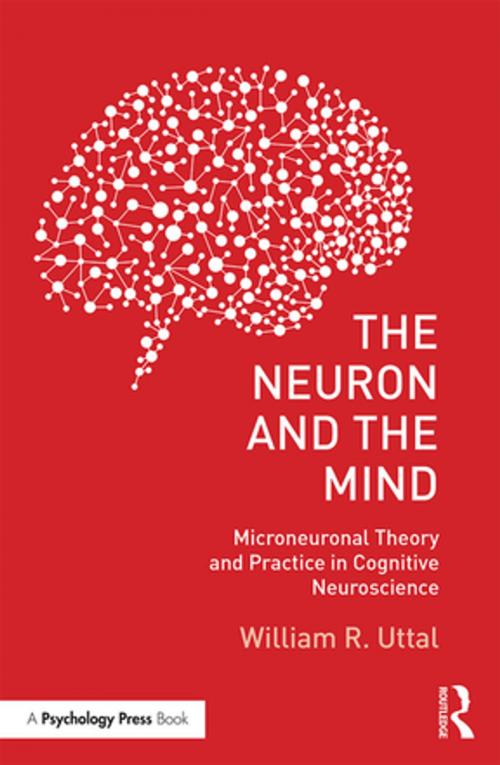The Neuron and the Mind
Microneuronal Theory and Practice in Cognitive Neuroscience
Nonfiction, Health & Well Being, Psychology, Experimental Psychology, Physiological Psychology, Cognitive Psychology| Author: | William R. Uttal | ISBN: | 9781317208082 |
| Publisher: | Taylor and Francis | Publication: | July 1, 2016 |
| Imprint: | Routledge | Language: | English |
| Author: | William R. Uttal |
| ISBN: | 9781317208082 |
| Publisher: | Taylor and Francis |
| Publication: | July 1, 2016 |
| Imprint: | Routledge |
| Language: | English |
This book, a companion to William R. Uttal’s earlier work on macrotheories theories of mind-brain relationships, reviews another set of theories—those based on microneuronal measurements. Microneural theories maintain the integrity of individual neurons either in isolation or as participants in the great neuronal networks that make up the physical brain. Despite an almost universal acceptance by cognitive neuroscientists that the intangible mind must, in some way, be encoded by network states, Uttal shows that the problem of how the transformation occurs is not yet supported by empirical research findings at the micro as well as at the macro levels of analysis. Theories of the neuronal network survive more as metaphors than as robust explanations. This book also places special emphasis on the technological developments that stimulate these metaphors. A major conclusion drawn in this book is that it is not at all certain that the mind-brain problem is solvable in the sense that many other grand scientific problems are.
This book, a companion to William R. Uttal’s earlier work on macrotheories theories of mind-brain relationships, reviews another set of theories—those based on microneuronal measurements. Microneural theories maintain the integrity of individual neurons either in isolation or as participants in the great neuronal networks that make up the physical brain. Despite an almost universal acceptance by cognitive neuroscientists that the intangible mind must, in some way, be encoded by network states, Uttal shows that the problem of how the transformation occurs is not yet supported by empirical research findings at the micro as well as at the macro levels of analysis. Theories of the neuronal network survive more as metaphors than as robust explanations. This book also places special emphasis on the technological developments that stimulate these metaphors. A major conclusion drawn in this book is that it is not at all certain that the mind-brain problem is solvable in the sense that many other grand scientific problems are.















